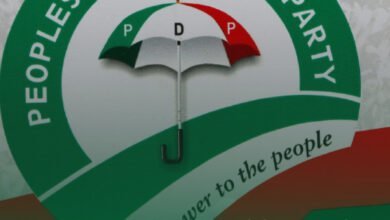
As Nigerians grapple with rising electricity costs, Tony Elumelu, Transcorp Group chairman, has proposed a novel solution to tackle a major contributing factor: rampant electricity theft.
He recommends establishing special courts to swiftly prosecute offenders.
Experts estimate electricity theft costs the nation billions of naira annually.
Elumelu argues these courts would deter theft and address Nigeria’s persistent energy crisis. “There should also be a process of naming and shaming convicted energy thieves,” he added, advocating public accountability.
Less than a month after Elumelu’s suggestion, the Federal Government swiftly responded, announcing plans for an “electricity offenses tribunal” with an in-built appeal system.
The Nigerian Electricity Management Services Agency (NEMSA) will be empowered to prosecute offenders
“We are working on the establishment of an electricity offences tribunal with an in-built appeal system for faster dispensation of electricity-related offences. “It is to vest NEMSA in-house counsel with powers to prosecute electricity offences,” the managing director of the Nigerian Electricity Management Services Agency, Aliyu Tahir, disclosed in Abuja on Thursday, 20th of June, at a press briefing.
“…The establishment of this tribunal solely for the power sector will go a long way in ensuring that we fast-track the process, carry out enforcements and sanction violators,” he added.
For many, this could significantly improve DisCos’ revenue collection by deterring theft and simplifying prosecution.
However, some experts caution that the tribunal’s effectiveness hinges on proper funding, staffing with qualified judges, and establishing clear procedures to avoid bureaucratic delays.
‘Electricity theft: Understanding the Reasons Behind it
While the financial losses due to theft are undeniable, it’s important to understand the reasons behind it. Some consumers might resort to theft due to high electricity bills or lack of access to legal connections. Addressing affordability concerns and streamlining connection processes could incentivize legal electricity usage.
‘The ripple effect
Energy theft affects power suppliers and Nigeria’s economy. In 2018, the Association of Electricity Distributors (ANED) said revenue losses linked to power theft and poor payments were around N155.89 billion. The Nigerian Electricity Regulatory Commission (NERC), in its first quarter report in 2019, said N2 is lost to energy theft and poor distribution equipment for every N10 worth of electricity received by DisCos. DisCos, in 2020, announced over N30 billion revenue loss, which it said was due to a high level of customer involvement in energy theft, meter bypass, and vandalism.
Aside from costing the power suppliers billions of naira annually, electricity theft is said to affect the economy. According to experts, when electricity is stolen, it affects the quality of the power supply and increases the load on generating stations. They say electricity theft also affects the tariffs electricity suppliers impose on genuine customers as there are no other means to recover the revenues lost to the power thieves other than to distribute ‘crazy bills’ to them. This position counters the claim that some have become electricity because of ‘crazy bills’.
‘Electricity theft laws without success’
A law can be said to have served its purpose when it brings offenders to book, but the electricity theft laws such as the Electric Power Sector Reform Act (EPSRA) 2005, Miscellaneous Offences Act (MOA), and specific provisions in the Criminal Code and Penal Code have not recorded much success. Instead, electricity thieves have continued to have their field day at the expense of the country’s power suppliers and economy.
‘Experts advise’
Experts commend the government for working towards setting up a Tribunal to curb electricity theft in the country. They say the power thieves in the country have continued to grow because there is no such court in place to prosecute them. They, however, urge the government to speed up. They contend that if the court is not set up on time and electricity thieves are not prosecuted as a deterrent for others, the country’s power sector will continue to lose billions of naira to electricity theft.
While the tribunal is a positive step, experts also urge a multi-pronged approach. Public awareness campaigns could educate citizens on the negative impacts of theft and the benefits of legal connections. Additionally, improving metering infrastructure with tamper-proof technology could significantly reduce theft opportunities.





